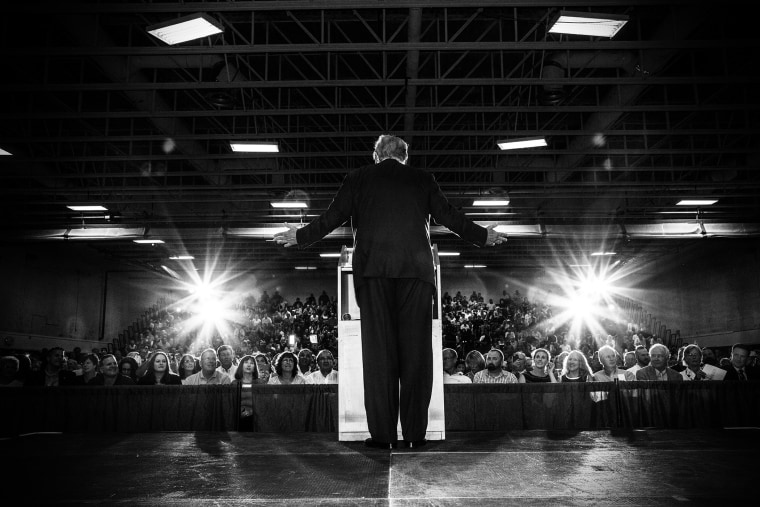Republicans are voting in 11 states today as part of the Super Tuesday “SEC Primary,” the first big slate of multiple contests in the GOP nominating fight. Based on the polls, it’s front-runner Donald Trump’s night to lose.
Surveys have shown Trump holds a large lead nationally and in a number of the key states up for grabs, although some races have little data available. Two national polls this week, one from CNN/ORC International and one from Morning Consult, found Trump’s support among Republicans around the country hitting new heights with support hovering around 40 percent despite continuous attacks from his rivals since last Thursday’s debate.
In the runup to the race, Sens. Marco Rubio and Ted Cruz are throwing everything they have at Trump. Both condemned Trump this week for repeatedly refusing to condemn support from David Duke and the Ku Klux Klan on CNN (Trump later said he misheard the question). Rubio has called Trump a “con artist” in his stump speeches and argued Trump's use of foreign workers at his Florida resort and Chinese manufacturers on his branded clothing lines show he’s a hypocrite on immigration and trade. Cruz has pressed Trump to release his tax returns and even suggested that they may reveal Mafia ties.
On Monday, Cruz and Rubio opened up a new line of attack after BuzzFeed reported that some New York Times staff believe Trump undermined his harsh immigration position in an off-the-record editorial meeting with the paper. Both candidates have called on Trump to release audio from the interview.
Trump scored an important endorsement on Sunday in immigration hardliner Sen. Jeff Sessions and picked up backing from Govs. Chris Christie of New Jersey and Paul LePage of Maine on Friday.
RELATED: Quiz: How much do you know about Super Tuesday?
After winning South Carolina on February 20, Trump has a chance to rack up delegates in a number of Southern states with similar political profiles, including Alabama, Georgia, Virginia, Arkansas, Oklahoma, Tennessee and Texas. Massachusetts, where Trump is heavily favored, is also voting, along with Vermont, Alaska and Minnesota.
In general, expectations are low outside the Trump campaign. The hope for both Cruz and Rubio is that they’ll be able to compete for delegates while laying the groundwork to overtake Trump later in the race – potentially at the Republican convention itself. The Super Tuesday states are not winner-take-all, but the rules vary contest to contest, and it’s possible for Trump to score a solid majority of delegates with only a narrow plurality of votes.
The most closely watched race is Texas, where Cruz is working to defeat Trump and score a significant delegate haul in his home state. Trump has already severely disrupted Cruz’s broader campaign plan, which assumed the senator would be able to translate his support with social conservatives to early Southern victories.
For Rubio, the goal is to win delegates where possible and continue to position himself as the leading alternative to Trump, hopefully prompting others in the race to drop out and give him a cleaner shot at the front-runner.
The bigger day for Rubio and Trump alike will be March 15, when the first winner-take-all races begin and Rubio’s own home state of Florida – where polls have shown Trump leading for months – holds its primary. If Trump wins Florida and Ohio, where Gov. John Kasich is also looking for a home-court revival, in March, he will become difficult if not impossible to overtake.
